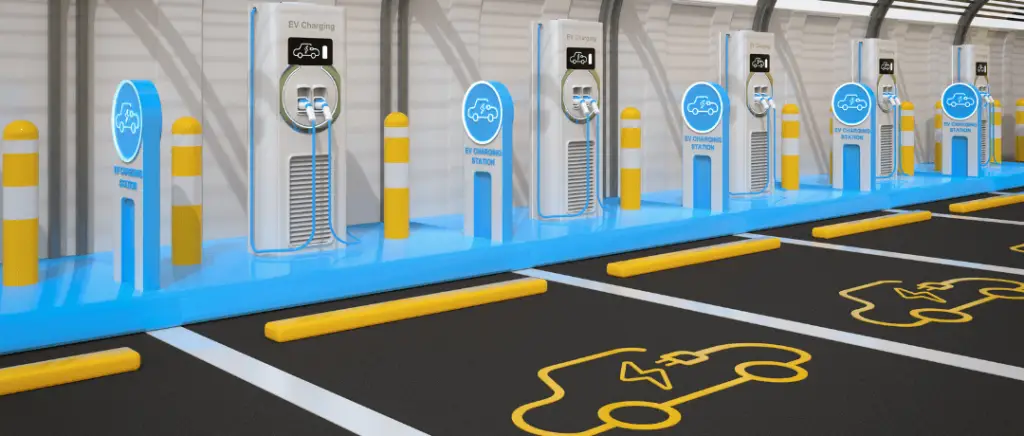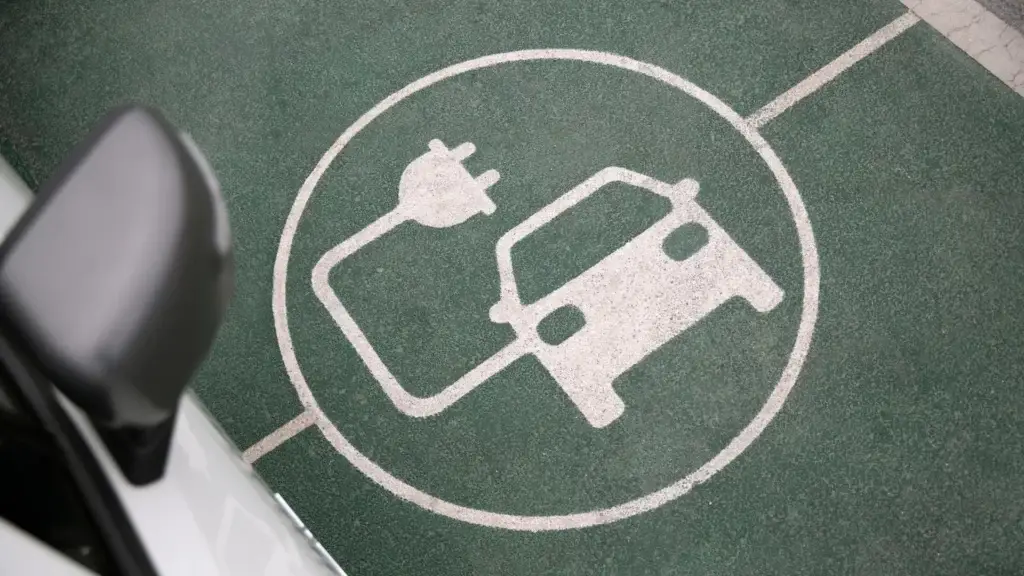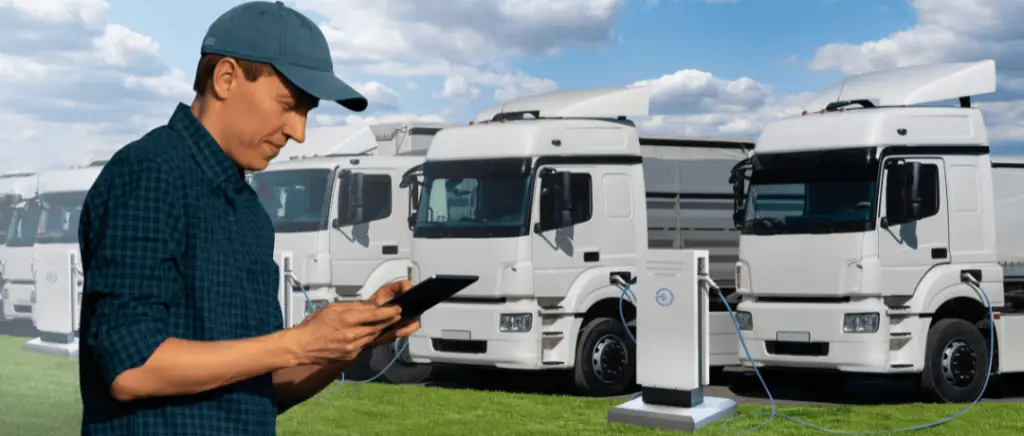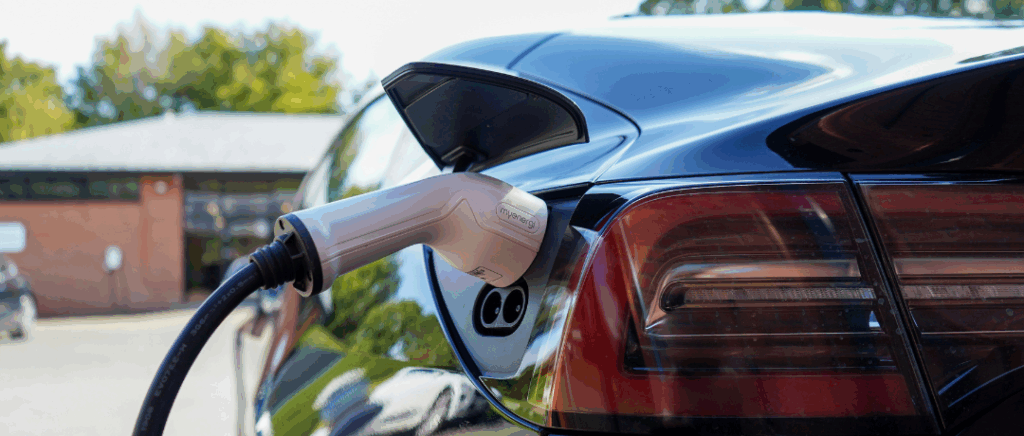Free recharging on company premises: measure extended to 2025
Good news for electric vehicle owners and companies: the free charging at the workplace will remain tax-free in 2025. In fact, the Bulletin Officiel de la Sécurité Sociale (BOSS) has indicated that ".the derogations (...) which expire on 31 December 2024 will be extended by the government"..
In other words, this decision, confirmed by the Ministry of the Economy, extends the measure introduced in 2020 for encouraging the adoption of electric vehicles in companies.
The extension of the latter provides a real relieffor both employees than for companies.
Employees will continue to be able to charge their electric vehicles free of charge at their place of work, without this being considered a taxable benefit in kind. According to a study conducted by YouGov, 56% d'electric vehicle users express the wish to have recharging facilities on their business premises during working hours and 49% say they are willing to make a financial contribution in order to benefit from this service.
For companies, this means that they will not have to not have to pay social security contributions on the electricity supplied to recharge their employees' vehicles.
💡Did you know ? According to EDF, recharging your car at home or at work costs between €2.50 and €4 per 100 km on average.compared with 3 times more in town or on the motorway.
See also our article :
But that's not all: this extension also concerns the regime applicable to charging stations installed by the company in employees' homes. Therefore, as long as the terminal is returned at the end of the employment contract, the benefit linked to this assumption of costs is not taxed.
Monday to Friday
9am to 12.30pm and 2pm to 7pm
Where applicable, if the employee keeps the charging point at the end of his or her employment contract, the tax and social security treatment of the purchase and installation costs is governed as follows :
- For a terminal less than 5 years old :
- The exemption from social security contributions is limited to 50% of real expenditure that the employee should have incurred.
- This exemption is capped at 1 043,50 € (value at 1 January 2025).
- For a terminal more than 5 years old :
- The exemption amounts to 75% of actual expenditure that the employee should have incurred.
- The exemption ceiling has been raised to 1 565,20 € (value at 1 January 2025).
The aim of these provisions is to strike a balance between encouraging the installation of home charging points and providing a framework for the tax benefits granted to employees.
For companies, maintaining this measure means they can continue to offer this service with no additional tax impact. In addition, for electric company vehicles, a 50% deduction on the benefit in kind linked to these vehicles is maintained, with a ceiling raised to €2,000.30 for 2025.
See also our article :
This measure is part of an overall strategy to Catalyse the electrification of the national car fleet. Despite the ambitious targets set for the adoption of electric vehicles by large companies, results remain below expectations, with only 8% of new registrations by major groups in 2023 will be electric.
Legal obligations from 2025
The extension of free recharging for electric vehicles on company premises has been accompanied by new legal obligations coming into force on 1 January 2025. These measures are designed to speed up the transition to more sustainable mobility, while imposing constraints on employers.
The LOM law: what's changing in 2025
Mandatory installation of charging stations
Under the LOM law, all existing non-residential buildings with a car parks with more than 20 spaces must provide charging points for electric vehicles from 1 January 2025. In addition, companies will be required to install at least one recharging point for every 20 parking spaces.
This obligation aims to equip at least 5% of parking spaceswith the possibility that this percentage be increased to 10% by a European reinforcement.
See also our article :
For the new buildings or which have undergone major renovations, the requirements are even more stringent :
- 20% places must be pre-equipped for the future installation of charging points.
- For the car parks with more than 10 spacesat least a recharging point must be installedwith a additional bollard for every 20 pitches.
Accessibility for people with reduced mobility (PRM)
But that's not all: the law also provides for specific provisions for people with reduced mobility. At least one recharging point must be large enough for a PRM vehicle.
For the car parks with more than 200 spaces, 2 spaces with charge points must be adapted for PRMsone of which is reserved exclusively for their use.
In addition, parking spaces equipped with recharging stations and accessible to PRMs must have the following characteristics following characteristics :
- A easy access to the terminalwith no obstacles to impede mobility.
- And a geometry as well as a facilities to enable anyoneregardless of disability, tocarry out the operations required to recharge the vehicle.
Electrification of company fleets
The companies with more than 100 vehicles will be subject to fleet electrification targets. They will have to achieve 40% of electric vehicles in their fleet by 2025. This percentage will gradually increase to reach 70% in 2030.
It should be noted that failure to comply with all these legal obligations will expose companies to financial penalties from 2025. Visit the amount of these penalties may not exceed 1% of the company's turnover. For example, for each electric vehicle missing from the fleet, the penalty will rise to €2,000 in 2025and will increase in subsequent years (4,000 in 2026 and 5,000 in 2027).
However, these obligations do not apply if major work is needed to adapt the electricity network. Companies must therefore carefully assess the technical and financial feasibility of installing charging points.
The EPZs: what's changing in 2025
As a reminder, from 1 January 2025 ZFEs will be extended to 42 French conurbations with more than 150,000 inhabitants. This measure aims to improve air quality in urban areas by restricting the circulation of the most polluting vehicles.
See also our article :
The mandatory introduction of Low Emission Zones (LEZs) in all conurbations of more than 150,000 inhabitants could indirectly encourage the electrification of company fleets and employees' personal vehicles.
As a result, the changes planned for 2025 in terms of the EPZs represent a major challenge for companiesbut also offer theopportunity to modernise their fleet and help reduce greenhouse gas emissions. A anticipation and a meticulous planning will be essential to make the transition to more sustainable mobility a success. To achieve this, we need to have a fleet manager for optimum fleet management.
See also our article :
Conclusion
The extension of free recharging for electric cars on company premises offers a number of advantages, including numerous advantages for both employers and employeesThis is part of a broader regulatory framework designed to accelerate the electrification of the French car fleet.
For the companiesThis is an opportunity to modernise their fleet, d'improve their brand image and benefit from significant tax advantages. For the employeesis the opportunity to make savings and actively contribute to reducing their carbon footprint.
However, this transition will not be without its challenges. Companies will have to navigate an ever-changing regulatory landscape, with theextension of EPZs and news obligations regarding the installation of charging stations. Careful planning and anticipation of the changes to come will be essential if this transition is to be a success.
In this context, expert solutions such as Beev are essential. As a specialist in electric mobility, Beev offers tailor-made support to companies wishing to electrify their fleets and install electric vehicles. company charging points.






































